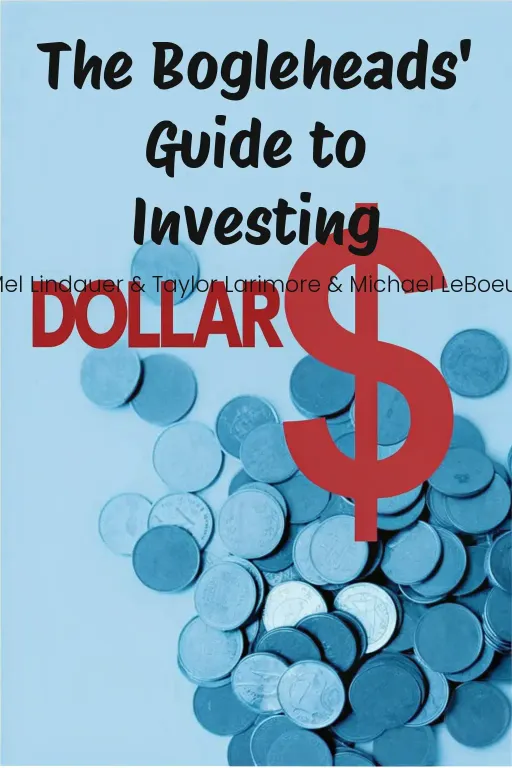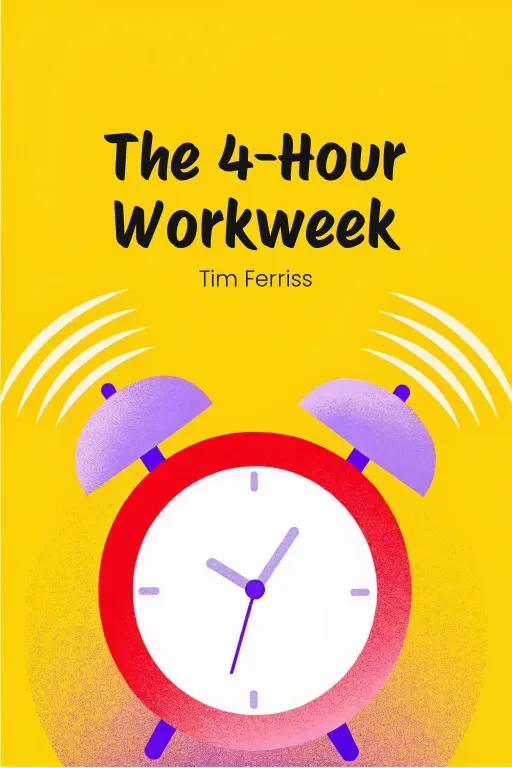
Wealth Secrets: Live Richer, Not Flashier
Podcast by Let's Talk Money with Sophia and Daniel
Enduring Strategies for Building Wealth
Wealth Secrets: Live Richer, Not Flashier
Part 1
Daniel: Hey everyone, welcome! Today we’re diving into financial independence with insights from The Next Millionaire Next Door by Thomas Stanley and Sarah Stanley Fallaw. If you're curious about what it “actually” takes to build lasting wealth, stick around. Sophia: Ah, let me guess. Is this another lecture about skipping lattes and avocado toast? Daniel, please tell me this book offers more than just that. Daniel: It definitely does, Sophia. The book really turns our assumptions about wealthy people on their heads. It's not about the flashy cars or McMansions. It's about the discipline, the frugal habits, and a really grounded mindset that self-made millionaires develop over time. Sophia: So, no secret formulas or winning lottery numbers here? Daniel: Nope. The authors really dig into the traits that predict financial success—things like resilience, being conscientious, and financial smarts. And it's all backed by real data and case studies. We're talking about intentional financial growth, not just luck. Sophia: Okay, sounds good. But how realistic is it to translate these principles into everyday life? Daniel: Exactly, and that’s what we're going to talk about today! We're breaking the book down into three main pillars: first, the daily habits that build a solid foundation for wealth; second, the mindset that helps you resist the urge to overspend; and third, practical strategies you can use to make financial independence a reality. Sophia: Habits, mindset, and actionable strategies—a masterclass in adulting, basically. Alright, let’s get started.
Disciplined Financial Behaviors
Part 2
Daniel: Okay, let's dive in. At the heart of it, it's about disciplined financial behaviors, right? This is the real foundation for building wealth. It's about those consistent habits that give you genuine financial stability over time. The book really emphasizes that becoming wealthy isn't some random stroke of luck or just inheriting a fortune; it's a very conscious choice. Sophia: Choices, huh? So, like, if I just give up that extra streaming service or resist the urge to buy a fancy car, I'm on my way to being a millionaire? Daniel: Well, yes, in a way, but it's more profound than that. Let's talk about frugality, which is often misunderstood. This book shows how frugality is a strategic decision, not just deprivation. Take the Jacobsons, for instance. They live in a modest 1,900-square-foot house. They don't feel the need to constantly upgrade their lifestyles as their income increases. Instead, they prioritize what's most important: saving and investing. Sophia: 1,900 square feet? That's pretty reasonable, not exactly a palace. But honestly, if they have the money, why not enjoy it a little? I mean, you only live once. Daniel: That's a fair point, but what's so clever about their strategy is that by focusing on their long-term objectives rather than short-term desires, they've achieved financial security and, honestly, peace of mind. They prioritize "balance-sheet affluence," focusing on building net worth. They don't chase after that "income-statement affluent" lifestyle—you know, those who live paycheck to paycheck despite making a lot of money, just to show off a flashy image. Sophia: So, they're kind of opting out of the whole rat race. I get that. But isn't there a risk of, you know, being so frugal that life loses its excitement? Daniel: True, but that’s where we often misunderstand frugality. It’s not about saying "no" to everything; it’s about intentionally saying "yes" to what truly matters to you. The book explains that for disciplined savers like the Jacobsons, it’s not a loss; it’s freedom. They prioritize the things that bring value to their lives, such as family and stability, while cutting out the unnecessary expenses that don’t. Sophia: Okay, frugality: check. So, what's next? Just living like a pauper until you've got a million in the bank? Daniel: Not exactly, but living below your means is extremely important. It’s a concept that's been around forever, but people still misunderstand it, right? A lot of people think a high income means wealth, but Allison Lamar’s story kind of debunks that idea. Sophia: Oh yeah? Tell me more. Daniel: Allison Lamar grew up in modest circumstances; her family struggled financially. But instead of letting that pull her down, she learned resilience and discipline early on, thanks to her grandparents, who always stressed the importance of saving. She started as a teenager with a paper route in freezing temperatures, diligently saving what she earned. Even in college, earning only $6.50 an hour, she made saving a priority. Sophia: Wow. From delivering newspapers to delivering financial independence? That's impressive. But how can someone apply that if they didn't start with that kind of singular focus? Daniel: It's really about building habits and sticking with them. Lamar's story shows you don't need a huge salary to build wealth. By consistently living below her means—spending less than she earned—she invested in her long-term security instead of fleeting pleasures. The lesson is simple: financial freedom doesn’t require a massive income; it requires massive discipline. Sophia: Hmm, saving money at $6.50 an hour requires a lot of self-control – or not getting distracted. I mean, in today's world, with ads everywhere telling you to buy things, how realistic is it to stay that focused? Daniel: It’s definitely a challenge, which is why people who do it really stand out. Millionaires prioritize saving over spending. They see their money as a tool to grow their wealth, not as a way to get instant gratification. This book finds that "prodigious accumulators of wealth" often save more than 20% of their income. They're not stuck in that cycle of earning and spending that so many people are caught in. Sophia: Twenty percent? That’s way higher than average. Most people save next to nothing – they struggle to put away even 5%. How are these disciplined savers different? Daniel: They often create solid financial systems, like budgets and automated savings. They make saving easy – almost automatic. Take the Jacobsons again: they structured things so one salary covered the essentials, and the other went into savings, investments, and emergency funds. They didn't just hope to save whatever was left over; they planned to save. Sophia: So, no spontaneous "treat yourself" moments? They sound more like financial monks than millionaires. Daniel: Well, maybe they are a little monk-like, but it worked! Having these structured plans shields families like theirs from lifestyle inflation – the tendency to spend more as you earn more. The Jacobsons didn’t feel limited by their system; they felt empowered by it because they knew they were securing their future. Sophia: Yeah, I see what you're saying. But let’s be honest, Daniel, how many people can really resist the urge to keep up with the Joneses? Those fancy cars and vacations are tempting, no matter how disciplined you think you are. Daniel: Well, that’s why this book highlights stories like Lamar and the Jacobsons – to show you what's possible when you focus on your values over what society expects. True wealth isn’t about showing off what you have; it’s about using it as a tool for independence and resilience. And that shift in perspective can change everything for someone who wants to break free from consumerism. Sophia: Alright, I'll admit: saving more and spending less sounds a lot smarter than maxing out credit cards on things you don't need. Still, doesn’t a little splurging now and then keep life interesting? Daniel: Absolutely. Discipline doesn’t mean you have to deprive yourself. It's about balance and living intentionally – having a plan but still enjoying the journey.
Mindset and Social Indifference
Part 3
Daniel: So, understanding these behaviors naturally leads to exploring the mindset behind them. And that brings us to one of my favorite concepts from the book: social indifference. It “really” builds on those disciplined habits we talked about, but looks at the psychological and societal pressures that can throw your financial success off track. Sophia: "Social indifference"? Is that just a fancy way of saying you don't care what other people think? Daniel: It’s close, but it’s more intentional. Social indifference is about having the ability to resist societal pressures and not getting caught in that endless cycle of trying to keep up with the Joneses. It's being able to say, "You know what? I don't need to upgrade my car or buy the latest gadget to impress anyone." The book argues that this mindset is absolutely essential for building lasting wealth. Sophia: Yeah, easier said than done, right? We live in a world where comparisons are everywhere—your neighbor's Tesla, that perfect vacation plastered all over social media. How do you actually tune all that out? Daniel: That's a great question. Well, let’s bring up Mrs. C as an example; she was great at this. She made a conscious decision to step off the consumer treadmill. While everyone else was buying new cars and living extravagantly, she stuck to her financial goals. She wasn't interested in outspending her neighbors. Instead, she wisely invested her money into her business and family. Sophia: So she just ignored the world and stayed in her lane? Sounds a little solitary, doesn't it? How do you fight that feeling of FOMO -- that fear of missing out? Daniel: Well, that's the beauty of social indifference. It's about changing how you see "missing out." For Mrs. C, it wasn't about giving up anything; she actually said, "We didn’t miss anything and we didn’t truly ‘suffer.’” She found a real sense of freedom and peace by not caring about societal expectations. Watching her friends chase after status symbols only made her more committed to her financial plan. Sophia: Okay, but what if you're always surrounded by people showing off their wealth? Mrs. C sounds like she had nerves of steel. What about the rest of us mortals? Daniel: It's definitely tough when displays of wealth are the norm. But the book shows that Mrs. C didn’t just resist – she actually changed what "winning" meant to her. Instead of wanting her friends’ luxury purchases, she saw them as distractions from her financial freedom. Her story proves that wealth isn’t about appearances; it’s about what you’re building quietly in the background. Sophia: So, it's like the financial version of "don't judge a book by its cover." But let's talk stereotypes here. The media always shows wealth as big houses, fancy cars, designer clothes. Are real millionaires immune to all that? Daniel: That's actually one of the biggest myths that the book takes apart. High earners, like doctors or executives, are often mistaken for being wealthy because of their income. But many of them fall into the "Income Statement Affluent" category – they live large but haven’t actually built wealth because they spend everything they earn. Sophia: Sounds like those people who make a quarter of a million a year but are drowning in credit card debt from that McMansion and expensive SUV. Daniel: Exactly! They focus more on appearances than on financial stability. True millionaires focus on building net worth. They're not just looking at their income; they’re focused on accumulating assets and minimizing liabilities. In fact, data shows that millionaires often live below their means, putting their money into investments or business ventures instead of flashy purchases. Sophia: Alright, so income doesn’t equal wealth. Got it. But even if you commit to social indifference, isn’t it exhausting to constantly go against the grain? How do people keep that mindset without burning out? Daniel: It's all about having clarity and purpose. Millionaires who practice social indifference have a very clear view of their financial goals. That vision is like their North Star, guiding their decisions and making it easier to resist temptations. They also use practical techniques, like focusing on net worth instead of income, practicing delayed gratification and setting very personal financial goals that have nothing to do with comparing themselves to others. Sophia: Hold on there… "delayed gratification" has to be one of the hardest things in our "instant everything" world. I mean, we're used to getting practically anything delivered tomorrow. Daniel: True, but delayed gratification is a millionaire's secret weapon. By postponing non-essential purchases, they can put resources into the priorities, like investments, paying off debt, or saving for the future. The book puts it beautifully: when you focus on what truly matters, you’re less tempted by fleeting pleasures. Sophia: Alright, but let's get specific. Can you give a clear example of social indifference in action? Something our listeners can “really” relate to. Daniel: Cars! Talk about a universal status symbol, right? The book highlights how millionaires approach car buying, and it's super interesting. The median price they pay for their vehicles is just $35,000. They're driving Toyotas and Hondas, not Lamborghinis and Porsches. This shows that they value function over flash, proving again that wealth is about purpose, not looking good. Sophia: Wait a minute—millionaires in Camrys? That’s the opposite of what every luxury car ad wants you to believe. How does that work in a world obsessed with image? Daniel: That’s the essence of social indifference. Millionaires are focused on their long-term financial health. They know that overspending on things like cars only hurts their goals. They're not trying to prove anything to anyone. And it's not just cars; it's how they approach most expenses. They ask themselves, "Does this serve my financial future?" Sophia: But let's be honest here, Daniel. Isn’t all that discipline a little joyless? Are these millionaires just spending their days crunching numbers and avoiding every pleasure in life? Daniel: Not at all! The beauty of social indifference is that it makes room for true joy. By freeing themselves from societal pressures, they can spend money on what truly makes them happy – whether that's family vacations, giving to charity, or just having a sense of financial peace. It’s about living authentically. Sophia: Alright, fair point. But let's talk about the elephant in the room: social media. These days, every platform is just an endless stream of curated lifestyles. How on earth do you stay indifferent to all that in the age of Instagram envy? Daniel: Social media definitely complicates things. Constantly seeing perfect lives can encourage consumerism and make people feel inadequate. But here's the surprising thing: millionaires actually spend very little time on social media. Instead, they focus on productive activities, like building their businesses, researching investments, or developing their skills. Limiting exposure to that digital pressure cooker helps them stay grounded and financially disciplined. Sophia: Makes sense. So while the rest of us are scrolling through influencers’ beach vacations, they’re out there actually doing the work to build a life they don’t feel the need to flaunt. Daniel: Exactly! Staying off that comparison treadmill allows them to focus on what truly matters. And in doing so, they gain something far more valuable than likes or followers: they gain freedom, resilience, and financial independence.
Practical Strategies for Wealth Accumulation
Part 4
Daniel: Okay, so now that we've established the right mindset, it's time to talk practical strategies. This is where we shift from theory to “doing”, turning those disciplined behaviors and that social indifference into real actions that build lasting wealth. Sophia: Right, so we’re moving from the "what" to the "how." I'm all ears, Daniel. Just, please, no spreadsheets with 15 tabs or a diet of canned beans! Daniel: Definitely not! These strategies are super practical and, honestly, pretty empowering. Let's start with smart investment choices – often the foundation of wealth for self-made millionaires. The core idea is that it's not about getting rich overnight with some crazy gamble, but about steadily growing wealth through smart, informed financial decisions. Sophia: Steadily growing wealth, huh? Sounds like what my retirement account should have been doing all along. But, seriously, how do millionaires actually pull this off? Are they glued to the stock ticker all day? Daniel: Not even close. And that’s where most people get it wrong—they assume building wealth is about quick, impulsive moves. The book actually says millionaires invest a lot of time in research and planning. On average, they spend over 100 hours a year crafting their investment strategies. Compare that to the "income-statement affluent" types, who barely spend half that time and often get caught up in speculative trends. Sophia: Ah, I see where you’re going with this. Instead of chasing shiny objects like "crypto" or "AI stocks," they’re sticking to the fundamentals, right? Daniel: Exactly. Millionaires focus on stable, reliable investments, ones that are backed by solid data and fundamentals. There’s a great example in the book about people who avoided the hype around companies like Enron and WorldCom – both of which, as we know, went down in flames – by sticking with more enduring giants like IBM and 3M. Not flashy, maybe, but grounded in proven performance. Sophia: So they're playing the long game. But let's get tactical here. If I wanted to start investing smarter today, what tools or methods would actually help me think like one of these millionaires? Daniel: Great question! First, they use a systematic budgeting approach. This makes sure every dollar has a clear purpose – whether it's going into retirement accounts, tax-efficient investments, or an emergency fund. They also rely on affordable tools like index funds and robo-advisors, which keep costs down and take a lot of the guesswork out of investing. Sophia: Okay, what about expert advice? You mentioned fiduciary financial advisors earlier. Are they really worth the money? Daniel: Absolutely – if you pick the right one. Think of Ms. Jenkins from the book. She’s a fee-only advisor, so her income isn’t tied to selling you expensive financial products. Instead, she offers behavioral coaching – helping clients stay calm during market swings and avoid making emotional, high-risk decisions. That kind of partnership can be a game-changer. Sophia: Alright, summing it up: don’t chase trends, do your homework, use cost-effective tools, and work with pros who put your interests first. Makes sense. So, what’s next? Figuring out how to stop debt from eating into all those smart investments? Daniel: Precisely! Debt-free living is the next essential piece of the puzzle. The book really emphasizes that avoiding excessive debt isn't just a financial strategy – it's a whole lifestyle choice that keeps millionaires on solid ground. Sophia: Let me guess, it’s not just about ditching credit card debt – it’s a complete mindset shift. Daniel: You nailed it. Take the case of Davis, a self-employed entrepreneur who got stuck in a cycle of loans, stress, and limited growth. Every month, he was answering to the banks instead of growing his business. It wasn’t until he heard a simple truth from Gene, who owned a salvage business, that he had his wake-up call: “Lenders own the businesses, and borrowers merely run them." Sophia: Ouch. That’s a tough one. So, basically, Davis became a tenant in his own business. How did he manage to turn things around? Daniel: He went all-in on paying off his debt and switched to a cash-first operating model. Instead of spending profits on upgrades, he used them to build a financially independent and sustainable business. Over time, he became debt-free, and his business became both debt-free and incredibly profitable. Sophia: Okay, but let’s dig into the specifics. For regular folks, who might not own a business, what’s the practical guide to living debt-free? Daniel: Start with strategies like the debt snowball or avalanche methods. The snowball method focuses on paying off smaller debts first to build momentum, while the avalanche method tackles high-interest debts for maximum savings. Pair that with a budget that prioritizes needs over wants, and avoid lifestyle inflation as your income increases. Sophia: Makes sense. But I have to ask: isn't some debt unavoidable? Mortgages, for example – does the book see those as necessary evils or total traps? Daniel: Mortgages are different because they represent an investment in an appreciating asset. But even with a home loan, millionaires are cautious—buying within their means, making larger down payments to cut down on interest, and avoiding unnecessary upgrades. Sophia: Got it. So the rule is simple: if your debt’s not helping you build wealth, it’s probably holding you back. What else is on the strategy list? I'm guessing career choices play a big role here, too. Daniel: Absolutely. Sales and entrepreneurship are two high-reward paths that come up repeatedly in the book. They offer uncapped earning potential while building the resilience and skills that are key to wealth. Sophia: Let me guess – grit is essential in both fields, right? Daniel: Exactly! Take Ted’s story. He started in insurance sales right out of college and faced constant rejection from cold-calling clients, but he refused to give up. He used those tough lessons to build a fintech business and solve problems he’d seen in his sales career. By combining resilience with an entrepreneurial mindset, he turned a challenging start into a thriving enterprise. Sophia: And what about entrepreneurship? What’s the secret sauce there, according to the book? Daniel: It's really about discipline and risk management. Look at Kevin Hartford. After his consulting business failed, he worked odd jobs for years, rebuilding his confidence and refining his strategy. Then, he took a calculated risk, buying a struggling manufacturing company and turning it into a multi-million-dollar success. Kevin’s story shows that failure isn’t the end – it’s often the starting point for incredible growth. Sophia: Alright, so whether you’re selling or starting something from scratch, the key is adapting and pushing through when things get hard. But not everyone is cut out for entrepreneurship – are these lessons still applicable? Daniel: Definitely. Whether you’re a salaried employee, a freelancer, or a business owner, the underlying principles are the same: align your skills with market demand, focus on long-term growth, and commit to continuous learning. Wealth doesn’t come from luck—it comes from intentional action.
Conclusion
Part 5
Daniel: Okay, Sophia, so we've really dug in today. We talked about solid financial habits, like spending less than you earn and saving on purpose. Then there's that whole idea of ignoring the Joneses, right? Not letting social pressure run your life. And finally, the practical stuff – smart investing, dodging unnecessary debt, and making the most of career moves. Sophia: Exactly. So the big picture is, real wealth isn't about showing off; it's about consistent growth. It's about building something solid, quietly and deliberately, while everyone else is chasing the next shiny object. You know, it's kind of a nice, grounded way to look at success. Daniel: Absolutely! And if there’s one key thing “The Next Millionaire Next Door” really drives home, it’s that becoming financially independent isn’t about winning the lottery. It's about making deliberate choices and sticking with them. These are principles that anyone can use, no matter where they're starting from. Sophia: So, I guess the real question is, are you building freedom, or just fueling appearances? And if it's the second one, maybe, just maybe, it's time to rethink how you're using your resources. Daniel: Precisely! Because financial independence starts with those small, consistent steps you take today. They're what creates limitless possibilities down the road. So keep your eye on the prize, be deliberate, and remember, true wealth is about the life you create, not the stuff you accumulate. Sophia: Right, Daniel, well, I’m off to do some soul-searching, maybe look at my own habits a little closer. Until next time, everyone—stay strategic, be present for your financial decisions, and maybe think twice before clicking "buy now."









